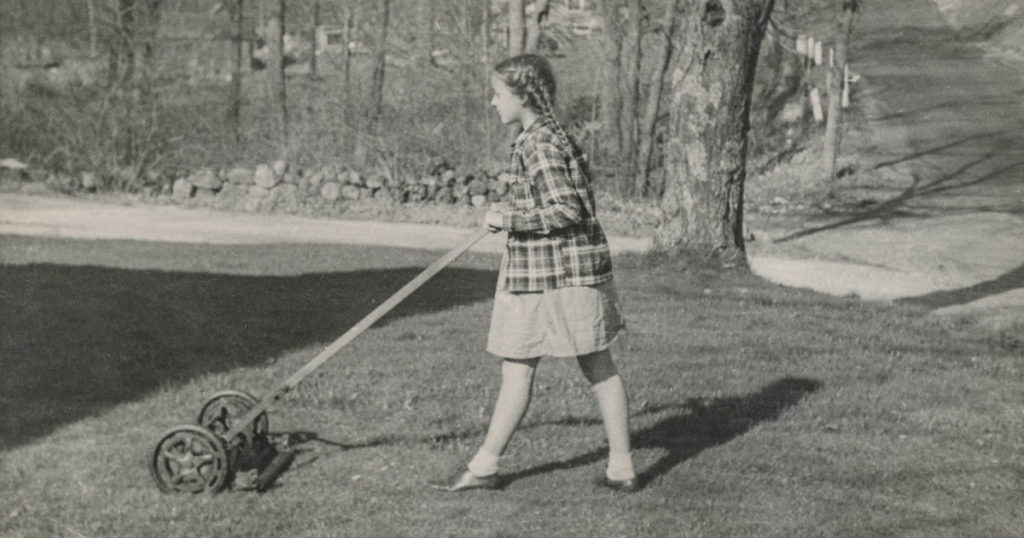
I told my mother one August morning at her home in Magdalena, New Mexico, that no, I would not join her on the porch for morning coffee because I wanted to finish the last article in the issue of The New Yorker that I was reading. Oh, my mother inquired, online or in real life?
Real life was the answer—a paper magazine I’d brought from Spain and that was a bit ragged from the travels. We laughed about her unexpected use of real life to mean in paper form. But I understood. Real life isn’t what is most common, but what is not fictional. “In my real life,” people say, to refer to their usual circumstances in contrast to something slightly fantastical about the situation they are in. That situation might be traveling, vacationing, working a temporary job, or housesitting in Malaysia or the Puget Sound or Ireland. “I was awake every morning at 5 a.m.! That never happens in my real life!” Or “I go straight to work at the animal shelter, without breakfast or a shower. That’s not my routine in my real life!” On moving to Lesotho many years ago, a friend of ours found herself with house servants to do her smallest bit of housework. That was a surprise for her. What a difference from her real life!
It took our friend just 24 hours to get used to servants. She spoke so breezily about the adjustment to being waited on that I imagined her entering a fully furnished house with a uniformed staff standing by as naturally and easily as one enters a dream world in one’s sleep. That’s how I believe my mother often feels about the world of technology—a fantastical place that has settled around her and taken shape almost without her awareness. It is deceptively easy to live in this tech world, but it is not necessarily a good world. My mother holds it at bay whenever she feasibly can, and she is sometimes dismayed by the inroads technology has made, as if technology is a couple of exotic and troublesome animals that slipped in when the door was left open, then multiplied, and now cluster in groups on bookshelves and window sills and on the counters. She feels leery of them. In preparation for her visit to Spain, however, we signed her up for automatic bill pay.
But no, the creeping advance of technology isn’t like intruders, but more like attendants, here to do our bidding. Just look at the garden robot that mows the grass at the house next door to mine and saves the owners the trouble. And yet, sitting in my patio on one of our first afternoons in La Pola, we watched the machine, which I named the bicho, a word meaning half bug and half villain, while my mother called it the monster, no ambiguity about her feeling. With its independent locomotion, it does seem like a creature. To judge from how it’s always bumping into things, it hardly knows where it is. We watched it. “Yes,” my mother seemed to be thinking, “just look at it creeping about, lowly muttering and insidious. Ugh.”
I first saw one of these garden robots several years ago and was open-mouthed. Now, after having seen dozens, I’m still not quite accustomed to this piece of modern machinery. It never tires and is out even at night, grumbling softly as it churns slowly across the yard, bumps into a bush, retreats, and takes a new course across the lawn. It does the kind of work that Dorrie, in Alice Munro’s story “A Real Life,” would have expected to continue until she died. Her future seemed to be “a life of customs, of seasons.” Instead, Dorrie’s friend Millicent pushes Dorrie into a marriage that she was on the verge of evading. “Marriage takes you out of yourself and gives you a real life,” Millicent argues. Millicent has, she thinks, saved Dorrie. She has a vision on the day of the wedding of the bride and groom seated on elephants and being borne forward into adventure. “He’ll take you everywhere!” she says. “He’ll make you a queen!”
My mother was with me in La Pola testing the waters for a longer visit, perhaps a permanent one. How does she feel now, back home after two months in Spain? She’d grown accustomed to the strangeness of the sidewalk tiles, to the traffic signs, the late hours, the street names on plaques set into the side of buildings rather than standing free on signposts. By the time she left, the delights had become a little less delightful—cars that always stop for pedestrians at crosswalks, the music of a foreign language, and outstanding cheese and pastries. What was objectionable was not so bad. Perhaps she even had a private moment with the bicho, offering her hand to be nuzzled through the fence, before she said goodbye to Spain and sank back into all the quiet thrill of her real life. Not travel and royal treatment, as Millicent dreamed of for Dorrie, but customs around the seasons. She’ll carry a book, write longhand in a notebook, send letters by snail mail, plan for her garden in the spring, and put a check in the post when a bill comes due. That’s as real as it gets.

